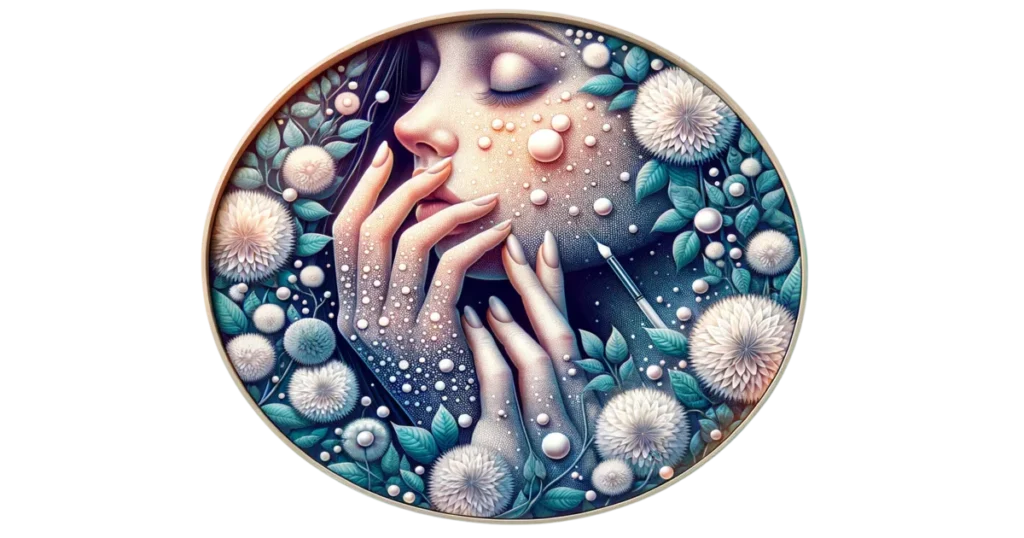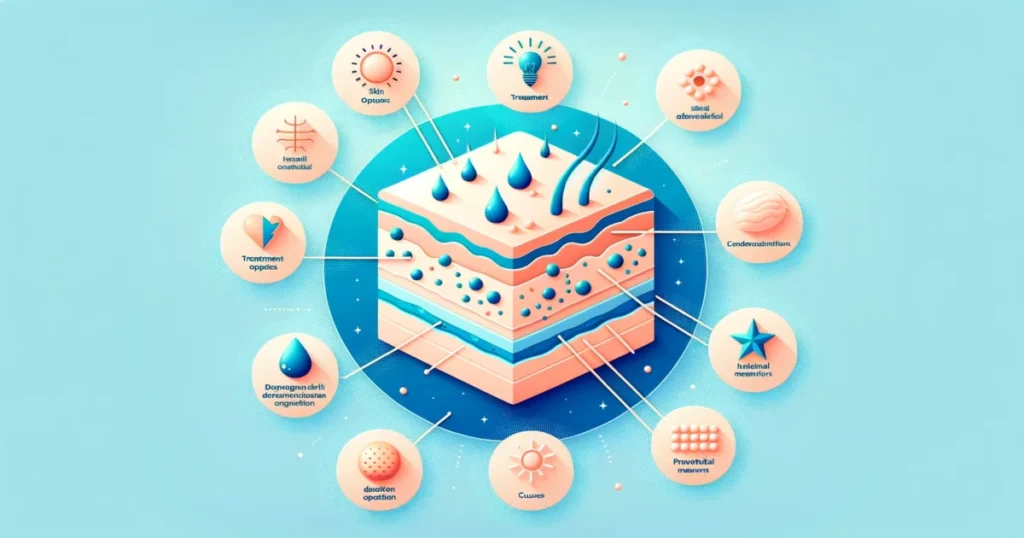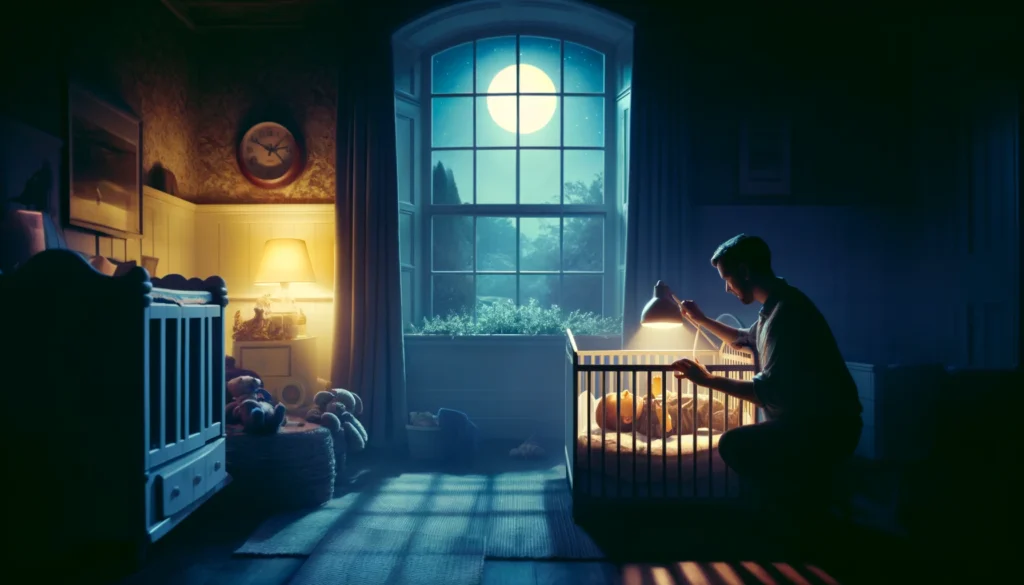Overview:
Welcome to our simple guide on Milialar (Milia)! In this article, we’ll break down everything you need to know about this common skin condition, from its causes and symptoms to effective treatment options. Consider this your go-to resource for understanding and managing Milialar, so you can enjoy clear and healthy skin. Let’s dive in! 🌟🔍

What is Milialar?
Milia, also known as Milialar, may sound fancy, but they’re those tiny, pearl-like bumps that can appear on your skin. They might be small, but they can be quite a bother. Let’s chat about why understanding and dealing with Milialar is essential for keeping your skin looking fresh and smooth. 🌟
Tip: To start your journey to smoother skin, think about gentle exfoliation – we’ll get into that in a bit. It’s a handy step to keep Milialar at bay. ✨💆
Causes of Milialar
To solve the Milialar puzzle, we need to know what makes it tick. What’s causing these little bumps? We’ll explore the reasons behind Milia formation and how they can affect your skin. Once you know the why, you’ll be better prepared to make smart choices for your skin routine.
Tip: While you’re learning about the causes, remember that good hygiene and skincare habits can go a long way in preventing Milia. 🚿🧴
Identifying Milialar Symptoms
If you’re wondering whether you have Milia, you’re not alone. Let’s talk about what Milia looks like and how you can recognize it. Spotting the signs is the first step to saying goodbye to Milia and hello to healthier skin.
Tip: If you see small, white bumps on your skin that just won’t budge, consider talking to a skin expert like a dermatologist for advice and a personalized treatment plan. 🩺👩⚕️
Milialar and Skincare
Your skincare routine plays a big role in the Milialar story. We’ll explain how the products you use and your skincare habits can either make Milia worse or help you get rid of it. Making wise choices about your skincare routine can make all the difference.
Tip: Choose skincare products that won’t clog your pores – they’re called non-comedogenic. It’s a good way to reduce the risk of Milia. 🌼🧖♀️
Treatment Options for Milialar
Ready to take on Milialar? We’ve got a toolbox full of treatments, both at home and from the pros, to help you kick those stubborn Milia bumps to the curb. From gentle exfoliants to dermatologist-recommended treatments, we’ve got you covered.
Tip: Consider giving gentle exfoliants like salicylic acid or glycolic acid a try. They encourage your skin to refresh itself and gradually say goodbye to Milialar. 🧴👋
Milialar Prevention Strategies
Preventing Milialar is often simpler than dealing with it later. We’ll share some proactive strategies to lower your chances of getting Milia in the first place. Little habits, like keeping your face clean and removing makeup before bed, can go a long way in keeping your skin clear.
Tip: Make a habit of washing your face regularly and always remember to take off your makeup before hitting the hay. It’s a simple way to maintain clear skin. 🌙🧼
Consultation with a Dermatologist
Sometimes, you need an expert’s advice. We’ll talk about when it’s a good idea to chat with a dermatologist about Milialar. Your skin is unique, and a dermatologist can give you personalized advice and treatments that fit you perfectly.
Tip: If Milialar doesn’t go away despite trying home treatments, don’t hesitate to seek expert help. Dermatologists can create a plan just for your skin’s needs. 👨⚕️🔬
Coping with Milialar Emotionally
Dealing with Milialar isn’t just about your skin – it’s about how you feel. These little bumps can be a blow to your self-confidence. Let’s talk about how to handle the emotional side of Milia and find ways to boost your self-esteem.
Tip: Be kind to yourself and remember that Milia is common and manageable. Your inner beauty always shines through, no matter what’s on your skin’s surface. 🌟💖

Table: Milialar Essentials 📋🌟
| Aspect | Details |
|---|---|
| Understanding Milialar | Let’s get to know Milialar better, those tiny bumps that can sneak up on your skin. What are they, and why should you care? 🧐✨ |
| Causes of Milialar | Explore the reasons behind Milia formation. Knowing the “whys” can help you make informed choices for your skincare routine. 💡🔍 |
| Identifying Symptoms | How do you recognize Milialar? Let’s dive into the common signs, so you can spot them and take action. 👀🚀 |
| Milialar and Skincare | Your skincare routine plays a big role. We’ll discuss how your choices impact Milia and your path to clear skin. 🧴🌼 |
| Treatment Options | Ready to bid Milia farewell? We’ve got a toolbox of treatments, both at home and professional, to help you out. 🛠️👋 |
| Prevention Strategies | Prevention is key. Learn proactive habits that can lower your risk of Milia. Simple steps can lead to smoother skin. 🚿🧖♀️ |
| Dermatologist Consult | Sometimes, you need an expert. Discover when it’s time to chat with a dermatologist for personalized Milia advice. 👩⚕️📞 |
| Coping Emotionally | Milialar can affect your self-esteem. Let’s explore ways to boost your confidence and love the skin you’re in. 🌟💖 |
Facts and Figures: Understanding Milialar 📈🔍
Let’s explore some intriguing facts and figures about Milialar, shedding light on this common skin concern:
- Common Skin Condition: Milialar, also known as Milia, affects people of all ages, from newborns to adults. These tiny white bumps are more common than you might think! 👶🧑
- Not Acne: Milialar isn’t acne, although it can appear similar. Unlike acne, these bumps are caused by trapped keratin, not excess oil. Understanding the difference is crucial for effective management. 🚫🌋
- Location Matters: Milia often appear in specific areas of the face, such as around the eyes, nose, and cheeks. Knowing where to expect them can help with early identification. 👁️👃👂
- No Age Limit: Milia can develop at any age, but they’re particularly common in infants. These “baby milk spots” typically resolve on their own within a few weeks. 🍼👶
- Spa-Worthy Treatment: Dermatologists and skincare professionals offer Milia extraction services. It’s like a spa day for your skin, leaving you feeling fresh and bump-free! 💆♀️✨
- Avoid Squeezing: Squeezing Milia at home is not recommended, as it can lead to scarring and infection. Patience and proper care are your best allies. 🙅♀️⚠️
- Sun Protection: Sunscreen isn’t just for preventing sunburn. It can also help prevent Milia. Protect your skin from harmful UV rays to maintain a clear complexion. ☀️🌞
Frequently Asked Questions🤔❓
Let’s dive into some common questions about Milialar and provide clear, reassuring answers:
Q: Are Milialar(Milia) Contagious?
No, Milia are not contagious. They are not caused by bacteria or viruses but by trapped skin cells.
Q: Can You Pop Milialar(Milia) at Home?
It’s best to leave Milia extraction to professionals. Trying to pop them at home can lead to scarring and infection.
Q: Do Milialar(Milia) Require Medical Treatment?
Not always. Many cases of Milia resolve on their own, but if they persist or bother you, consult a dermatologist.
Q: Can Skincare Products Cause Milia?
Yes, certain heavy or comedogenic skincare products can contribute to Milia. Opt for non-comedogenic products.
Q: Are Milialar(Milia) Painful?
Milia are typically painless. They may be more of a cosmetic concern due to their appearance.
Q: Do Milia Go Away on Their Own?
In some cases, yes. Milia in infants often disappear on their own. However, in adults, they may require treatment.
Conclusion: Embracing Skin Clarity 🌟💆♂️
As we wrap up our journey through Milialar, remember that clear, healthy skin is within reach. Embrace these insights and tips to navigate Milia with confidence:
- You’re Not Alone: Milia is a common skin issue, and you’re not alone in facing it. Many people experience and successfully manage Milia.
- Patience Pays Off: Milialar often requires patience. Avoid the temptation to pop them and allow your skin to heal naturally.
- Consultation is Key: If Milia persist or cause concern, consult a dermatologist. They can recommend tailored treatments for your specific needs.
- Love Your Skin: Your skin is unique and beautiful, bumps and all. Embrace self-compassion and maintain a skincare routine that suits your skin type.
- Stay Sun-Savvy: Protect your skin from the sun’s harmful rays. Sunscreen is your friend in preventing Milia and maintaining skin health.

Do you want to know more about Parenting ? Click here to read our easy tips on our blog!
- Active Parent, Happy Child: Effective Tips for Modern Parenting
- How to Convince your Parents to Say Yes | Parental Approval
- Muela del juicio: una guía para entender las muelas del juicio
- 1 to 3 Month Pregnancy Diet Chart: First Trimester of Pregnancy
- When Parenting Time Conflicts with Extracurricular Activities



Pingback: Feeling Mentally Checked Out? Here's What You Need to Know